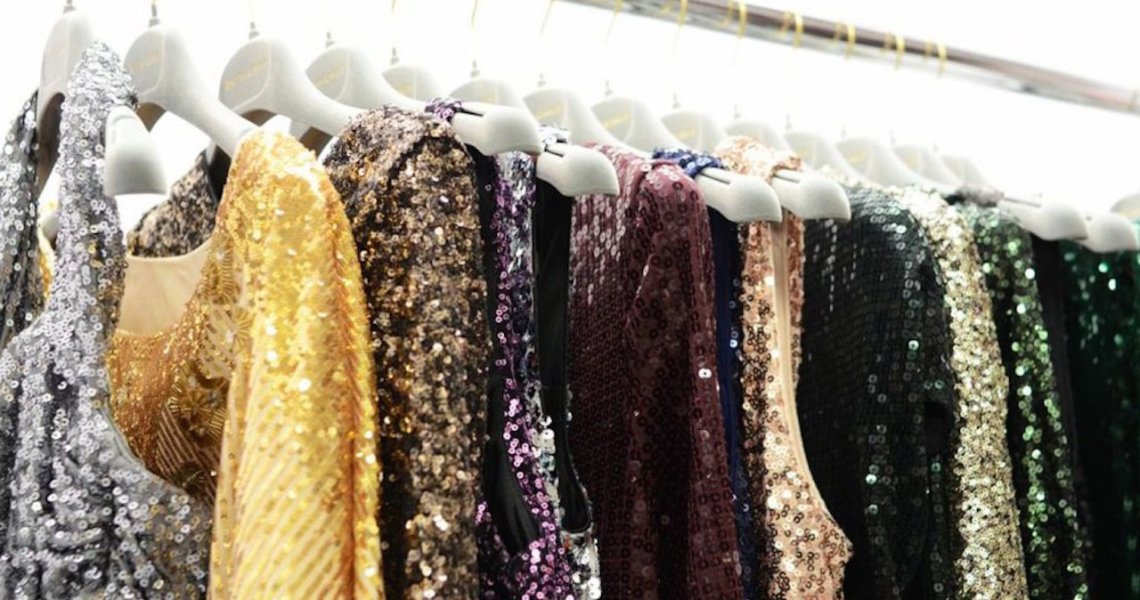In the last year, the major rental platforms have increased the ways they work with brands, offering them more partnership options, more control and more ways to get in on the benefits of the booming rental economy.
Many brands were first lured to rental platforms due to the large volume of their wholesale orders, said Sarah Tam, chief merchant at Rent the Runway. In the early days, Rent the Runway would buy 20 to 25 units from brands, but now the company orders hundreds and hundreds. In some cases, Rent the Runway is the brand’s largest wholesale partner.
Sharing data with brands is something Rent the Runway has done from the beginning, but in the past year, it has started offering brands two new partnership options: co-production and revenue sharing.
Designers like Derek Lam and Jason Wu co-manufacture with Rent the Runway, providing the company new designs and allowing Rent the Runway to source material and handle the actual production. The products are part of what Rent the Runway calls its Designer Collective, and included styles feature labels reading “Jason Wu Collective” and “Derek Lam Collective,” for example. This project launched at the end of 2018 and has grown to include 12 designers including Victor Alfaro and Prabal Gurung.
The process allows Rent the Runway to use its data to adjust the designs for its members, which are often of a different demographic than the high-end designer brands’ regular customers. Tam said that at luxury department store Saks Fifth Avenue, where she was once a buyer, the average customer is 52 years old and about 70% of the assortment is black. At Rent the Runway, where the average customer is 29, 80% of the assortment is a bright color.
Even more notable is Rent the Runway’s new revenue sharing model, which Rent the Runway has started offering in the last six months. Rather than simply selling product to Rent the Runway, some brands give the company product at no charge and then split revenue every time a piece is borrowed, using a cost-per-wear measurement to determine revenue.
Brands like Ralph Lauren and Ganni are currently part of the revenue-share program. Tam said the program has taken off, and 200 revenue-sharing brands are projected to be on the platform by the end of the year.
Ruth Hartman, who was chief merchandising officer at rental platform Le Tote before becoming president of Lord + Taylor after Le Tote acquired it, said that she’s seen a noted increase in working relationships between brands and rental.
“Both from an industry perspective and personally within my social circles, I’ve seen brands being much more open to rental,” Hartman said. “When I first joined Le Tote, I was nervous about having to convince people that rental could work, but I was surprised about how open-minded even really traditional brands were, and I think it’s only gotten better from there.”
Le Tote has a process in place that’s similar to Rent the Runway’s co-manufacturing program: It teams with brands on exclusive products that are co-designed and produced by Le Tote, using data about what styles, colors and materials its members are drawn to. Brands like Badgley Mischka, French Connection and BCBG have all done these capsule collections with Le Tote.
Afterward, Le Tote buys the capsules like it would any other product and does not revenue-share with the brands. These capsules are more about taking the designs produced by Badgley Mischka, for example, and giving them a slight adjustment to make them more appealing to a rental customer, who tends to favor flashier things they’d wear just once or twice.
Sky Pollard, head of product at Nuuly, said that even in the year since her company launched, she’s seen a notable increase in brand interest in working with rental.
“A little more than a year ago, we started reaching out to brands, and there were a lot of questions, a lot of uncertainty,” she said. “It’s amazing how much has changed since then. Rental is really becoming seen as just as legitimate as any other wholesale relationship, if not more so.”




